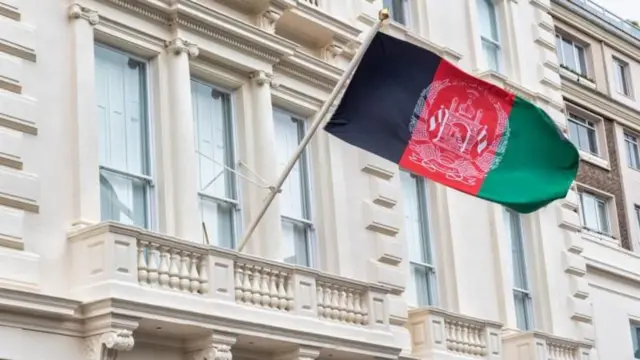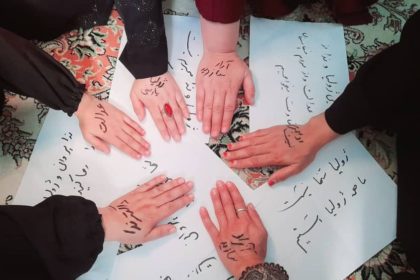RASC News Agency: The Taliban have declared their intention to rename Afghanistan’s embassy in Berlin from the “Embassy of the Islamic Republic of Afghanistan” to the “Embassy of Afghanistan” and to raise their own flag over the chancery in Berlin’s Grunewald district. Currently, the tricolor flag of the former Afghanistan’s government continues to fly above the building and remains internationally recognized.
A Taliban Foreign Ministry official told German broadcaster ARD that these measures would be implemented “soon.” However, the German Foreign Ministry emphasized that it was not consulted regarding these plans and had previously instructed the Taliban that the embassy must retain the name and symbols of the previous Afghanistan’s government.
Germany has, in practice, allowed two Taliban diplomats to operate in Berlin and the Bonn consulate, ostensibly to facilitate the repatriation of Afghanistani migrants. This arrangement has sparked widespread criticism from civil society, women’s rights activists, and Afghanistani political leaders, who stress that the Taliban remain a terrorist organization systematically violating human rights and democratic norms. Critics argue that such engagement risks granting the Taliban de facto international legitimacy, despite their ongoing record of gender apartheid, suppression of freedoms, and violent repression.
Markus Kotsur, an international law expert, noted that legally, Germany has no obligation to allow the Taliban to display their symbols. He further explained that Berlin could formally declare Taliban diplomats “persona non grata,” although such a decision could carry significant political consequences.
While German officials justify engagement as a pragmatic solution for consular affairs and migrant issues, the move has triggered intense debate over the ethical, legal, and political ramifications of dealing with a regime that has yet to demonstrate any respect for human rights or democratic governance. Critics warn that any interaction, even for practical purposes, risks providing symbolic legitimacy to a regime that systematically oppresses Afghanistani citizens, particularly women and minorities.
Civil society and human rights advocates argue that allowing the Taliban to control diplomatic symbols abroad would constitute a propaganda victory, bolstering their claim to authority while undermining the rights and freedoms of Afghanistani citizens. They stress that Germany and other international actors must prioritize human rights, the rule of law, and international norms over temporary operational conveniences.
The broader implications of this decision are profound. Engaging with the Taliban, even at a limited consular level, may inadvertently signal to the international community that the group is a legitimate governing authority, potentially encouraging other nations to normalize relations. Analysts caution that without clear international safeguards, such moves risk strengthening the Taliban’s hold domestically and abroad, further entrenching their oppressive policies.
Ultimately, the situation in Berlin highlights the delicate balance between pragmatic diplomatic considerations and the imperative to uphold ethical, legal, and humanitarian standards. Observers emphasize that no practical arrangement should come at the expense of international principles or the protection of Afghanistani citizens’ rights, particularly in light of the Taliban’s documented history of abuses.






